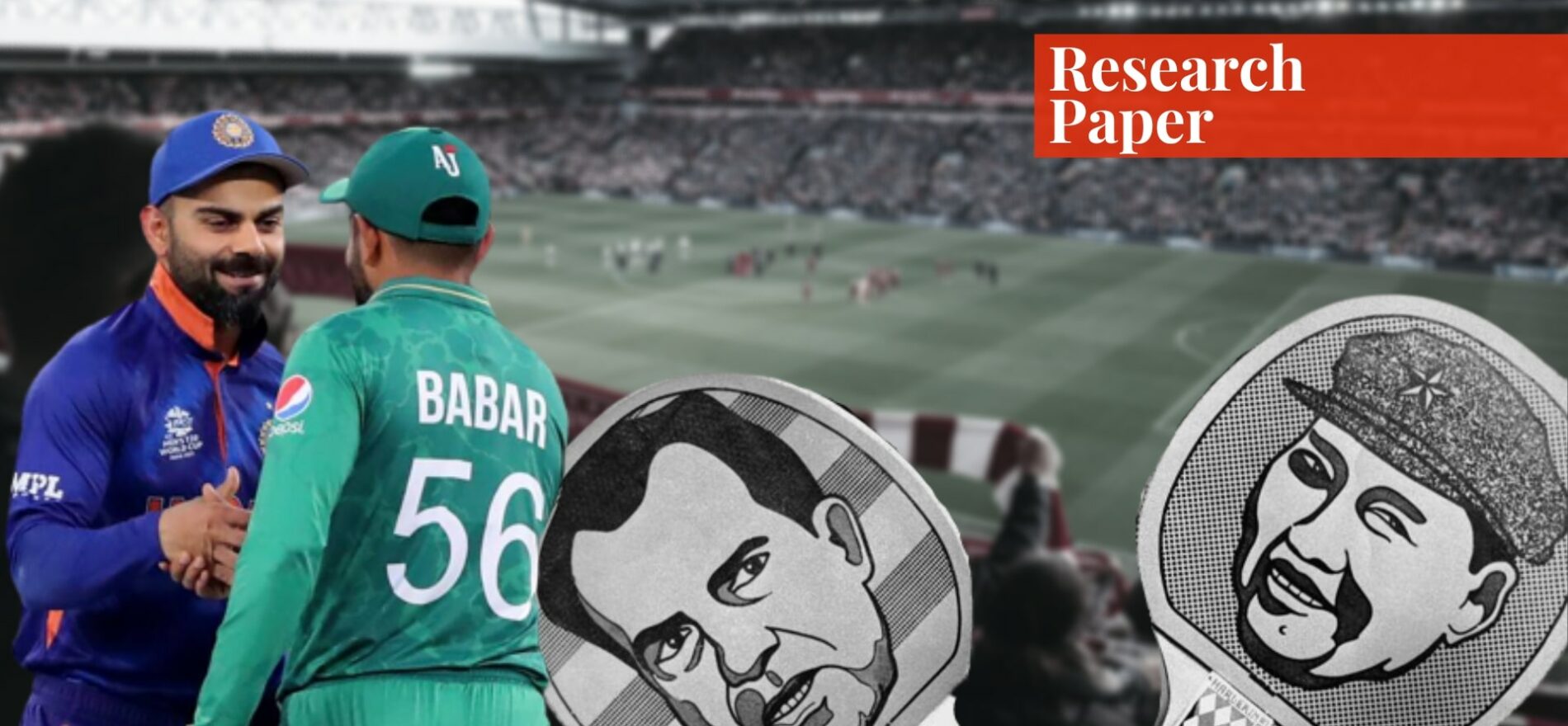Ms Masooma Zahra graduated with a bachelor's degree in International Relations from National Defence University.
Introduction
Diplomacy has remained an important part of international relations for centuries. The methods for maintaining diplomatic relations evolved and traditional diplomacy was replaced by modern diplomacy. Despite being a significant tool for ensuring good relations between states, there came a time when people lost their trust in diplomats and diplomatic relations.
People began to question the significance of diplomacy after the Cold War. Jackson (2002, p. 14) viewed traditional diplomacy as a “self-serving barrier to progress…standing in the way of an urgently needed international revolution”. Many other philosophers also passed such statements negating the necessity of the institution of diplomacy for promoting peace or stability in the world. “Traditional diplomatic institutions are faced with a simple choice: reform and innovate or face irrelevance.” (Murray, 2008, p. 07).
“There was a deep reluctance to explicitly engage the ‘world of sport’ as a focus of diplomatic analysis and practice” (Black and Peacock, 2013, p. 208). However, the relationship between sports and diplomacy became evident after incidents like the ping-pong diplomacy that changed the course of the US-Sino relationship.
The constantly ravaging diplomatic relations between some states can be amended using sports diplomacy. The paper will discuss case studies that will prove that sports diplomacy has helped revive almost dead diplomatic relations between states and therefore can be used to develop and maintain good relations between conflicting countries.
Sports and Politics
The first Olympic festival was organized in 776 BCE to unite various states irrespective of their political differences. Therefore, it can be noticed that the sole purpose of the first-ever Olympic festival was to achieve a political purpose i.e., peace in the world. Sports went on to become a diplomatic tool (Goldberg, 2000, p. 64).
A law was passed in Romania in 1967 that declared the significance of physical training (Goldberg, 2000, p. 64). Sports have not only been used by states to gain progress but some states have also invested in sports to gain international recognition just like the German Democratic Republic (GDR). The visas of players belonging to Germany got rejected by the US more than thirty times, but the constant brilliant performance of the GDR in sports forced the world to lift the blockade that was imposed on them by the US and its NATO allies.
Football Diplomacy
Sports diplomacy has been used in the processes of reconciliation and maintaining peace. Football for Peace (F4P) is one of the initiatives using the power of sports that has proved to be a great step toward promoting the culture of games in Israel. The intermixing of players of different religions to play football shows the significance of sports to deal with political and religious antagonisms (Whitfield, 2006).
FC Barcelona carries the prestige and fame that has made the club culturally significant. The foundations of this football club were restructured to increase its connections with the international community. FC Barcelona is part of the board of the public-private body of the Public Diplomacy Council of Catalonia (Eugenio, Ginesta & Xifra, 2013, p. 835).
Owing to the grandeur attached to its brand, FC Barcelona used its power in sports diplomacy to organize a “match for peace” that proved very beneficial for the revival of sports in Israel. Sports diplomacy is not different from cultural diplomacy (Eugenio, Ginesta & Xifra, 2013, p. 839), and that is because sports diplomacy uses players to engage with the people of other states.
These players bring with them the culture of their state and observe the culture of the country to which they have been sent. Hence, culture plays an important part in taking maximum advantage of sports diplomacy. The case study of F4P explains that football is understood as a universal language for peace (Eugenio, Ginesta & Xifra, 2013, p. 843). Therefore, football can be used as an influential tool for sports diplomacy in contemporary world politics.
Ping-Pong Diplomacy
In a butterfly act, very small events may trigger a much larger reaction in a geographically rather remote place (Hong and Sun, 2000, p. 420). Many small events, unexpected incidents, gestures, and personalities have played important roles in ping-pong diplomacy. The historical change in US-Sino relations was brought unexpectedly by the small ball of ping-pong.
Considering the importance of the event, one can understand the availability of a great amount of literature on ping-pong diplomacy, but various important details about the incident are missing, for example, the significant role played by Goto Koji, the then President of the Japanese Table Tennis Association, is not mentioned by many authors (Itoh, 2014).
Cricket Diplomacy
The world is familiar with the animosity existing between Pakistan and India since the partition of the sub-continent. Many series of cricket have been played between both states. Although cricket suffered a lot due to political tensions between the two states, still whenever a match series was organized, it brought the two nations closer through the exchange of players.
When Indian players visited Pakistan in 2004, Vajpayee asked the cricketers to not only win the matches but also win the hearts of the Pakistani public (The Diplomat, 2022). This shows how cricket diplomacy remained a significant tool for amending the relationship between the two states. One of the important parts of developing diplomatic relations with any other state is to build confidence, and cricket has been claimed as a confidence-building measure by some analysts.
Sports Diplomacy: A Manifestation of Soft Power
The opening ceremonies of the Olympics or any other sports festival that is organized in a state are used as tools to construct an image of the state’s identity. The images portrayed by any state are according to the will of its political elite (Delgado, 2016, p. 608).
In international relations, power is considered very important for influencing international politics. Gone are the days when any state could manifest its power by attacking another state. In the contemporary world, states cannot use coercive means for showing their capabilities to other states, rather they now use soft power. As investment in sports can prove to be an excellent tool for the manifestation of soft power, thus sports diplomacy can help promote peace and dialogues between states.
Conclusion
Sports diplomacy can be a necessary tool, but it is not sufficient by itself (Arne Næss-Holm, 2007, p. 33). However, states cannot negate the significance of sports in the world of politics and matters of diplomacy.
To excel in such an advanced world, one needs to understand the priorities of states and the accurate means to gain the attention of the world. Without maintaining a good global reputation, a state cannot have good diplomatic ties with other states. For the manifestation of soft power, every state needs to properly invest in sports.
References
- Robert Jackson, “Martin Wight’s Thought on Diplomacy,” Diplomacy & Statecraft 13, no. 4 (2002): 14, doi:10.1080/714000351.
- Stuart Murray, “Sports-Diplomacy: a hybrid of two halves,” (n.d.), 07.
- David Black and Byron Peacock, “Sport and Diplomacy,” in The Oxford handbook of modern diplomacy Oxford University Press (2013), 208.
- Jeremy Goldberg (2000) Sporting diplomacy: Boosting the size of the
- Geoffrey Whitfield, Amity in the Middle East (2006)
- Jordi de-San-Eugenio, Xavier Ginesta & Jordi Xifra (2017) Peace, sports diplomacy and corporate social responsibility: a case study of Football Club Barcelona Peace Tour 2013, Soccer & Society, 18:7, 836-848, DOI: 10.1080/14660970.2015.1067796
- Jordi de-San-Eugenio, Xavier Ginesta & Jordi Xifra (2017) Peace, sports diplomacy and corporate social responsibility: a case study of Football Club Barcelona Peace Tour 2013, Soccer & Society, 18:7, 836-848, DOI: 10.1080/14660970.2015.1067796
- ZHAOHUI HONG AND YI SUN, “The Butterfly Effect and the Making of ‘Ping-Pong Diplomacy,” Journal of Contemporary China (2000), 420-421
- Mayumi Itoh, “The Origin of Ping-Pong Diplomacy: The Forgotten Architect of Sino-U.S. Rapprochement,” The Journal of Japanese Studies 40 (Winter 2014): 256-259, https://www.jstor.org/stable/24242694
- Diplomat, The. 2022. “India And Pakistan’s Cricket Diplomacy”. https://thediplomat.com/2017/03/india-and-pakistans-cricket-diplomacy/.
- Arne Næss-Holm, “Batting for Peace: A Study of Cricket Diplomacy between India and Pakistan,” 2007, 32.
- Daniel Ricardo Lemus Delgado (2016) Opening Ceremonies of International Sports Events: The Other Face of Chinese Soft Power, The International Journal of the History of Sport, 33:5, 607-623, DOI: 10.1080/09523367.2016.1159200
- Arne Næss-Holm, “Batting for Peace: A Study of Cricket Diplomacy between India and Pakistan,” 2007, 33.
If you want to submit your articles and/or research papers, please check the Submissions page.
The views and opinions expressed in this article/paper are the author’s own and do not necessarily reflect the editorial position of Paradigm Shift.















